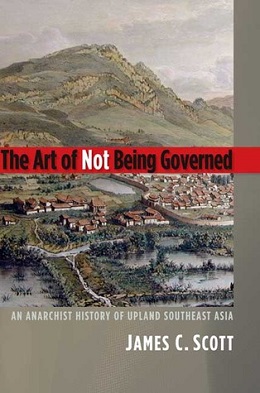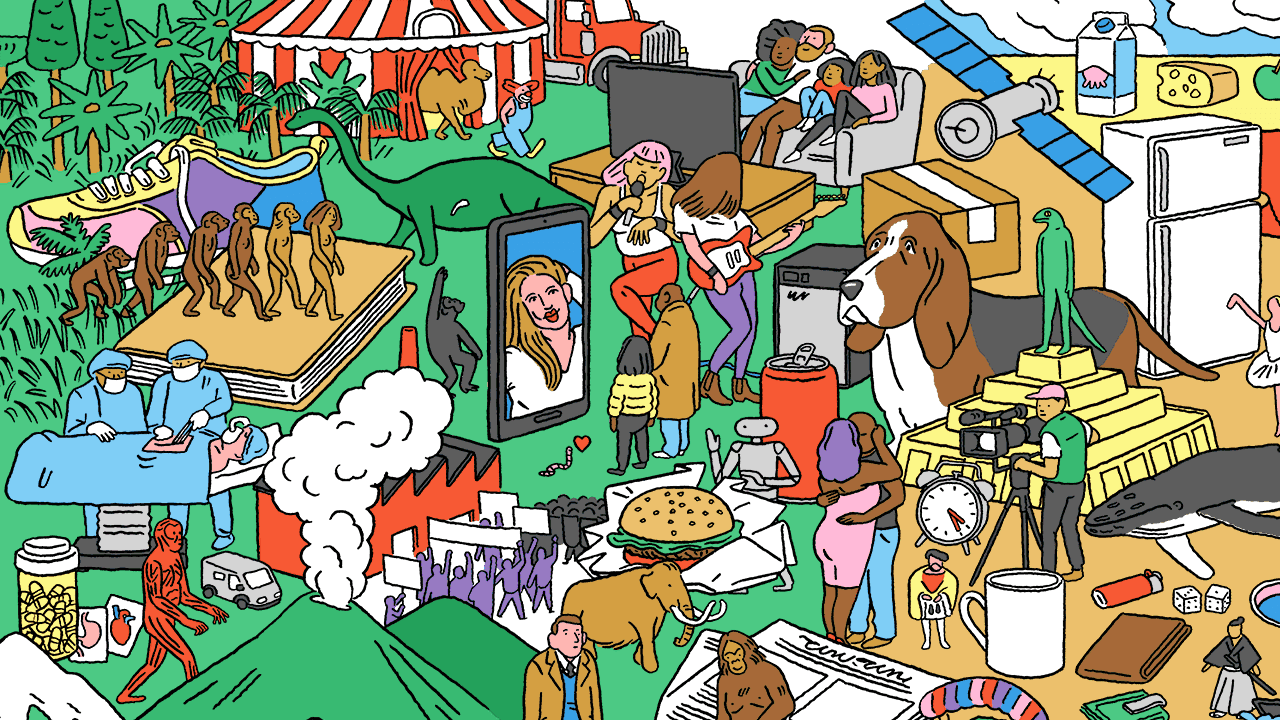You are using an out of date browser. It may not display this or other websites correctly.
You should upgrade or use an alternative browser.
You should upgrade or use an alternative browser.
Legibility, Illegibility, Anti-Legibility
- Thread starter sus
- Start date
shakahislop
Well-known member

The Art of Not Being Governed - Wikipedia
it's genuinely a lot less pretentious than it sounds, although it is fucking impossible to read, i don't think anyones ever read it all the way through
version
Well-known member
This is one of the fears about things like AI and the kind of surveillance tech we're developing. That they will be able to read us more comprehensively than we're able to read ourselves and we won't even know it. That it will be entirely out of our hands.I haven't seen him discussed on here I think, maybe because I spend my time reading 21 page threads about zhao's dick which were written while i was in secondary school, but there is all the james scott stuff about the legibility of populations to states, and the ways that people make themselves deliberately illegible to states in order to avoid being controlled by them.
version
Well-known member
What's so difficult about it?
The Art of Not Being Governed - Wikipedia
en.wikipedia.org
it's genuinely a lot less pretentious than it sounds, although it is fucking impossible to read, i don't think anyones ever read it all the way through
shakahislop
Well-known member
it's been a while since i opened it, because i gave my copy to my friend usman and he never gave it back. the tough part i remember is the relentless minutiae about upland communities in myanmar, which seem to go on and on forever in a quite unstructured way.What's so difficult about it?
shakahislop
Well-known member
i mean you can actually make sense of it. it's not like D&G or neitzsche. it just gets into the weeds a bit.it's been a while since i opened it, because i gave my copy to my friend usman and he never gave it back. the tough part i remember is the relentless minutiae about upland communities in myanmar, which seem to go on and on forever in a quite unstructured way.
Murphy
cat malogen
Legibility is vulnerability, so it's always going to be a gamble.
good way to fake scripts

Why is it that so many doctors have illegible or sloppy signatures?
Answer (1 of 2): That is the mark signature of a Doctor. Usually it is because doctors are on a hurry that’s why they have sloppy signatures.
IdleRich
IdleRich
How conscious do you think this reading of people is? I find that when I actually meet people, all this happens subconsciously and very quickly and gets whittled down to a general feeling about them.
luka
Well-known member

The Art of Not Being Governed - Wikipedia
en.wikipedia.org
it's genuinely a lot less pretentious than it sounds, although it is fucking impossible to read, i don't think anyones ever read it all the way through
The Ship of the Sun is Drawn 3: Eleusis
The vices of man, as full of horror as one might suppose them to be, contain the proof (if in nothing else but their infinitely expandabl...
Slothrop
Tight but Polite
I went to a tech conference a few years back where one of the keynotes was basically half an hour of ideas about legibility from another James Scott book, Seeing Like A State, with a ten minute coda about how tech is fucking everything up:
How is a software project like the USSR?
Unfortunately, this is not a joke and the answer isn't funny. Software follows in a grand tradition of totalitarian regimes by creating a simplifying vision of how the world works, then forcing the world to fit that vision.
The vision is different, as is the power we use to enforce it, but the failure modes share a lot in common.
This is a talk about power. We all have it, and we cannot abdicate it, so instead we must use it carefully and responsibly.
I will try to set you on the path to doing so, by giving you the introduction to cultural anthropology and anarchist theory that I wish someone had given me before I ever started developing software.
sus
Moderator
It's a thread about how we strategically make ourselves easy or hard to read
Yeah SLAS is an interesting book I haven't read Scott's others, but it does get into the way making a system legible is often a move for control, taxation, regulation which impoverishes the local community because they have to reorganize their activity in a way that makes sense to outsiders/higher-ups. It also gets in a bit to the fetish of legibility, where officials prefer straight orderly lines and matrices from a surveillance standpoint, but these things aren't necessarily amenable to quality on the ground.
Yeah SLAS is an interesting book I haven't read Scott's others, but it does get into the way making a system legible is often a move for control, taxation, regulation which impoverishes the local community because they have to reorganize their activity in a way that makes sense to outsiders/higher-ups. It also gets in a bit to the fetish of legibility, where officials prefer straight orderly lines and matrices from a surveillance standpoint, but these things aren't necessarily amenable to quality on the ground.
shakahislop
Well-known member
Yeah, right, exactly. It's a bit of a game changer when it comes to controlling people in general I think. Obviously there's no way to know, but I quite often end up wondering if this is going to be a big part of whatever it is that comes after democracy.This is one of the fears about things like AI and the kind of surveillance tech we're developing. That they will be able to read us more comprehensively than we're able to read ourselves and we won't even know it. That it will be entirely out of our hands.
Murphy
cat malogen
american road signs - Google Search
www.google.com
woops
is not like other people
these are great

